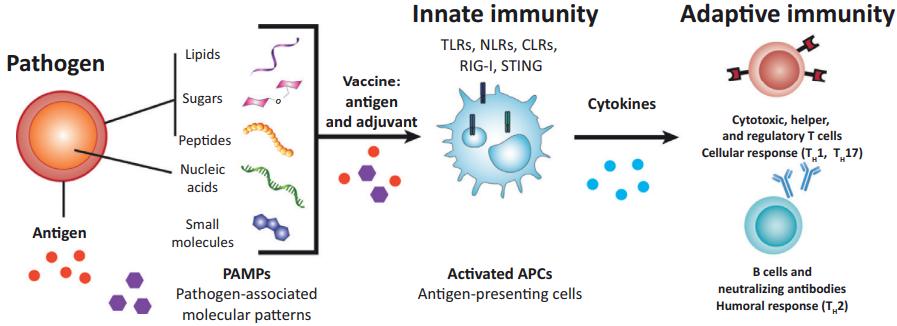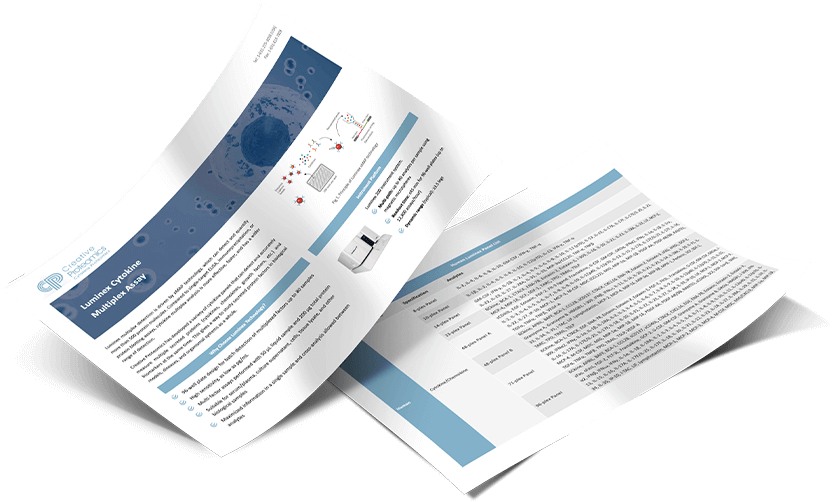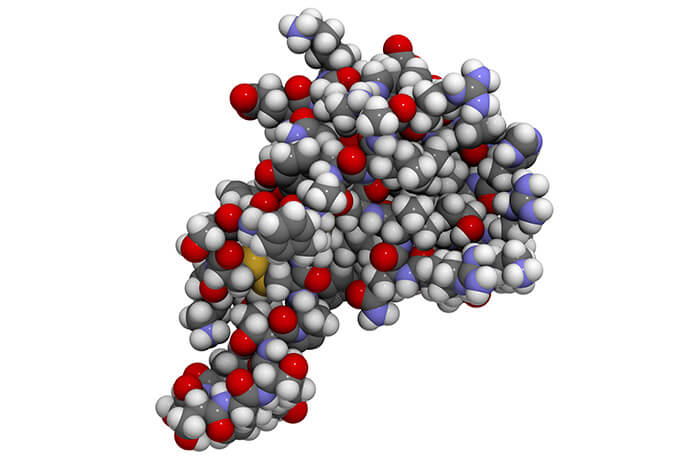The exploration of vaccine research delves into a realm of paramount importance, standing as a testament to humanity's enduring quest for health and well-being. To comprehend the present and shape the future, we must first navigate the historical tapestry of vaccines, woven with threads of innovation, resilience, and life-saving breakthroughs. Vaccines, since their inception, have played an instrumental role in reshaping the landscape of global health. This introduction serves as a portal to the annals of vaccine history, highlighting not only their profound impact on human health but also setting the stage for an in-depth examination of the crucial role that cellular factors, particularly cytokines, play in orchestrating the complex symphony of the immune system.
The journey of vaccines spans centuries, encapsulating moments of triumph and adversity in the relentless pursuit of conquering infectious diseases. From Edward Jenner's pioneering work with smallpox in the 18th century to the development of contemporary vaccines that shield against a myriad of threats, each chapter in the history of vaccines narrates a compelling story of scientific ingenuity. Vaccines have been pivotal in the eradication of deadly diseases, the prevention of widespread outbreaks, and the realization of extended and healthier lives for countless individuals across the globe.
The significance of vaccines extends beyond individual protection; it shapes the very fabric of public health. Immunization programs have been instrumental in curbing the spread of infectious diseases, resulting in the containment of epidemics and the preservation of community well-being. Through mass vaccination initiatives, societies have witnessed a decline in morbidity and mortality rates, and the once-devastating impact of diseases such as polio and measles has been significantly mitigated.
Within the intricate network of the immune system, cellular factors, specifically cytokines, emerge as the conductors orchestrating a harmonious defense against invading pathogens. These small but potent molecules regulate immune responses, fine-tuning the body's ability to recognize and eliminate threats. Acknowledging the pivotal role of cellular factors sets the stage for understanding how vaccines leverage these key players to enhance the efficacy and specificity of immune reactions.
 Overview of Innate and Adaptive Immune Activation by a Pathogen (Tom et al., 2019)
Overview of Innate and Adaptive Immune Activation by a Pathogen (Tom et al., 2019)
Principles of Vaccination
At the heart of vaccination lies the artful manipulation of the immune system, a process finely tuned to recognize and combat pathogens with precision. Vaccines typically contain harmless fragments of the targeted pathogen or weakened forms of the pathogen itself. When administered, these vaccine components act as simulated invaders, prompting the immune system to mount a defense without causing the actual disease. This priming process equips the immune system with the knowledge and weaponry needed to fend off the genuine threat should exposure occur in the future.
Vaccines serve as vigilant sentinels, standing guard at the forefront of public health by thwarting the spread of infectious diseases. By introducing a harmless version of a pathogen or its components, vaccines coax the immune system into a state of heightened readiness. This immunological preparedness ensures that, if confronted with the actual pathogen, the immune system can rapidly and specifically target and neutralize the threat. The preventive nature of vaccines thus disrupts the potential chain of infection, protecting individuals and communities from the devastating consequences of disease outbreaks.
Central to the success of vaccines is their ability to stimulate the production of specific immune cells, such as T cells and B cells, as well as antibodies. T cells play a critical role in orchestrating the immune response, while B cells produce antibodies, which act as molecular warriors capable of recognizing and neutralizing pathogens. The specificity of this immune response is paramount; vaccines aim to generate memory cells that "remember" the pathogen, ensuring a rapid and robust defense upon subsequent exposure. The coordinated action of these immune components exemplifies the precision and efficacy of vaccines in the realm of disease prevention.
Select Service
The Role of Cytokines in Vaccine Research
At the core of cytokine influence lies their profound impact on the dynamic interplay within the immune system. Functioning as regulators, cytokines intricately modulate the activation and differentiation of immune cells, unveiling a multifaceted role critical for tailoring vaccines to elicit targeted and potent immune responses.
One facet of cytokine engagement in vaccine research involves their meticulous regulation of immune response magnitude. Serving as mediators, cytokines finely balance pro-inflammatory and anti-inflammatory signals, determining the robustness of immune reactions. The deciphering of intricate signaling pathways governing cytokine expression becomes paramount, allowing researchers to optimize vaccine formulations for desired immunogenic outcomes.
Beyond mere intensity modulation, cytokines extend their influence to the regulation of immune response types. Actively participating in steering the differentiation of T cells, cytokines exert a profound impact on the character of the adaptive immune response. By modulating the development of specific T helper cell subsets—such as Th1, Th2, and Th17—cytokines contribute to tailoring immune responses with precision, crucial for designing vaccines capable of eliciting targeted immunity against a spectrum of infectious agents.
Select Service
Functional Vaccine Research
The forefront of contemporary immunological research is defined by the pursuit of functional vaccines, an innovative paradigm seeking not only prophylaxis against pathogens but also the modulation of immune responses for heightened efficacy. The current discourse on functional vaccine research showcases profound developments at the confluence of molecular biology, immunology, and translational medicine.
A notable hallmark of functional vaccines is their strategic manipulation of cytokines, pivotal signaling molecules orchestrating immune responses. Researchers are engaged in the precise calibration of cytokines to tailor immune reactions, ensuring a nuanced and targeted defense against specific pathogens.
Exemplifying the success of functional vaccines, particularly in the context of cytokine utilization, is the realm of therapeutic cancer vaccines. Here, tumor-derived antigens, coupled with adjuvants and strategically chosen cytokines, instigate a potent anti-tumor immune response. The orchestrated cytokine milieu serves as a regulator, influencing immune cell activation and differentiation, thereby augmenting the immune system's capacity to identify and eliminate malignant cells.
In the realm of infectious diseases, functional vaccines against viruses like influenza or human papillomavirus (HPV) leverage cytokine-mediated mechanisms for heightened immunogenicity. Tailoring vaccine formulations with specific cytokines aims to optimize the elicitation of protective immunity, providing a more efficacious defense against viral pathogens.
Additionally, functional vaccines designed to combat intracellular pathogens, exemplified by Mycobacterium tuberculosis, utilize cytokines to skew immune responses toward a Th1 profile. This tailored immunomodulation enhances the immune system's efficacy in eradicating intracellular pathogens, signifying a paradigm shift in vaccine design strategies.
Luminex Technology in Cytokine Assays for Advanced Vaccine Research
Application in Cytokine Assays
High Multiplexing Capacity: Luminex technology enables the simultaneous measurement of numerous cytokines, providing a comprehensive cytokine profile from a single sample. This multiplexing capability is particularly advantageous in vaccine research, where a holistic understanding of the immune response is crucial.
Reduced Sample Volume Requirements: The technology's efficiency allows for the analysis of cytokines from small sample volumes, conserving precious biological specimens, which is especially pertinent in clinical trials and studies with limited sample availability.
Sensitivity and Precision: Luminex assays demonstrate high sensitivity, allowing the detection of cytokines at low concentrations. This precision is essential for capturing subtle variations in cytokine levels induced by vaccines and facilitating the identification of biomarkers indicative of specific immune responses.
Dynamic Range and Customization: The technology offers a broad dynamic range, accommodating the measurement of both low and high abundance cytokines. Additionally, Luminex assays can be customized to target specific cytokines relevant to the vaccine under investigation, tailoring the analysis to the study's objectives.
Select Service
Integration into Vaccine Research
Vaccine Immunogenicity Assessment: Luminex technology facilitates the comprehensive assessment of vaccine-induced immune responses by profiling a spectrum of cytokines. This aids researchers in evaluating the immunogenicity of vaccines across diverse populations.
Biomarker Discovery: The high-throughput nature of Luminex assays enables the discovery of novel cytokine biomarkers associated with effective vaccine responses. Identifying such biomarkers enhances our understanding of vaccine mechanisms and aids in refining vaccine formulations.
Monitoring Immune Correlates: Longitudinal studies benefit from Luminex technology, allowing the monitoring of dynamic changes in cytokine profiles over time. This longitudinal approach provides insights into the persistence and durability of vaccine-induced immune responses.
Reference:
- Tom, Janine K., et al. "Applications of immunomodulatory immune synergies to adjuvant discovery and vaccine development." Trends in biotechnology 37.4 (2019): 373-388.


